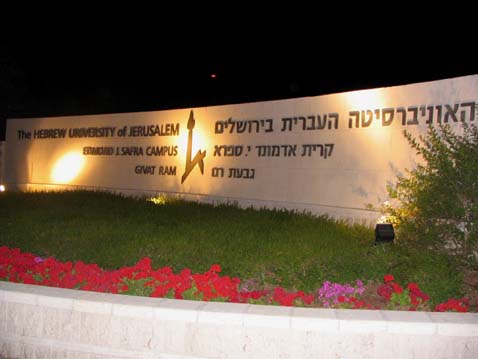
Hebrew University - Jerusalem
Friday, June 23, 2011by Carl in Jerusalem - Israel Matzav
At the President's conference, Hebrew University introduced a 'virtual cane' for blind people (Hebrew U had a large exhibition of their technologies, which I did not get to see as much as I would have liked). I'm going to show you a videotape and then we will see a press release about it.
Let's go to the videotape.
Yissum Research Development Company Ltd., the technology transfer company of the Hebrew University of Jerusalem, presented today at the Israeli Presidential Conference, a virtual cane that will significantly improve the orientation and mobility of sight-impaired people. This new device can assist blind people in estimating the distance and height of various obstacles. The invention was registered as a patent by Yissum, which is now seeking strategic partners for further development.Read the whole thing.
Currently there are almost 200 million visually impaired people globally, 40 million of which are legally blind, and most face multiple difficulties in orientation and navigation. One of the main challenges facing blind people is the ability to assess the height of various obstacles as well as to identify far away objects in their surroundings. The white cane, the current solution, offers only a very partial solution to these challenges.
Dr. Amir Amedi from the Institute for Medical Research Israel-Canada (IMRIC) and the Edmond and Lily Safra Center for Brain Sciences (ELSC) at The Hebrew University of Jerusalem and his team recently developed a device to help in spatial navigation for the blind. The invention, which functions as a virtual flashlight, can replace or augment the classic white cane. The virtual cane emits a focused beam towards surrounding objects, and transmits the information to the user via a gentle vibration, similar to a cell phone vibration. The cane incorporates several sensors that estimate the distance between the user and the object it is pointed at. This allows the blind person to assess the height and distance of various objects, reconstruct an accurate image of the surroundings and navigate safely. The virtual cane is extremely small, easy to carry, accurate, can function for up to 12 hours and is easy to charge. Using the device is highly intuitive and can be learnt within a few minutes.
